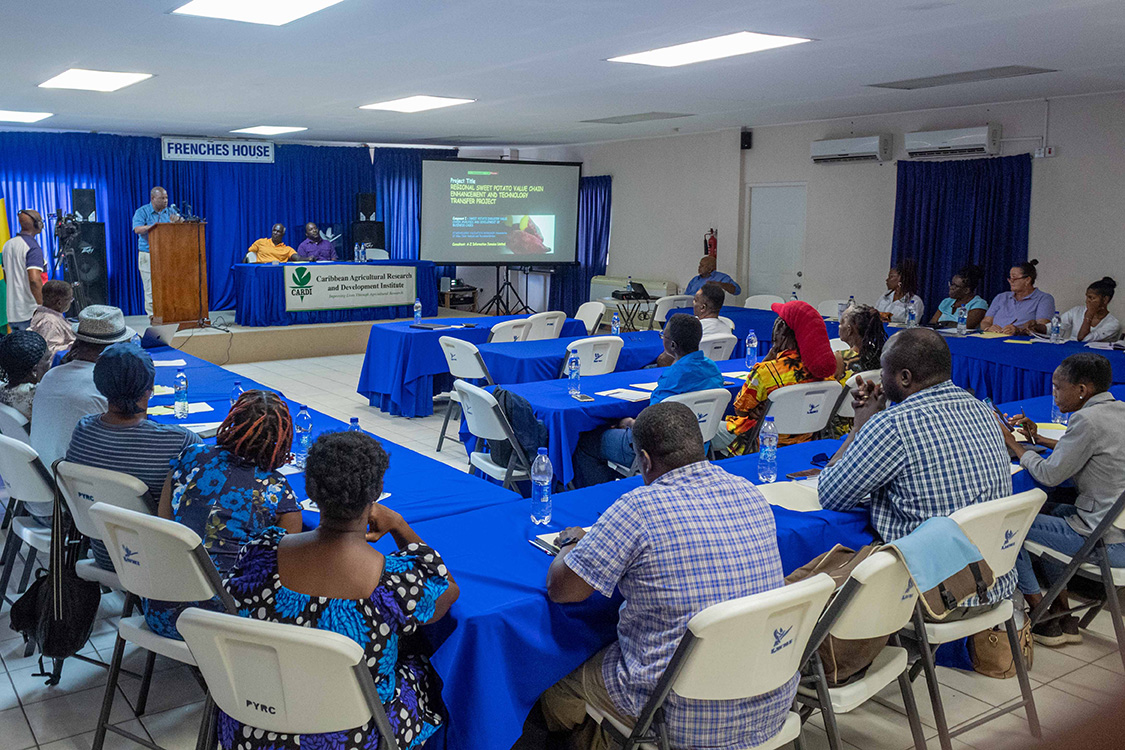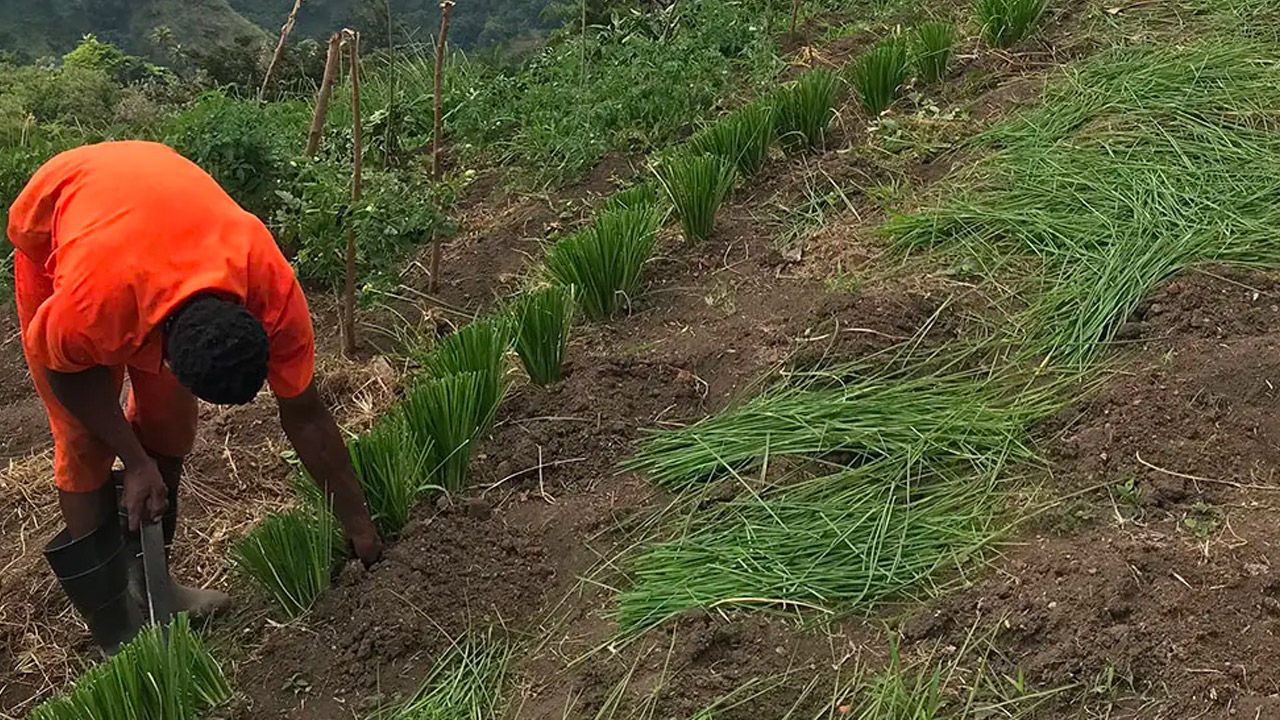On Thursday, 19th January, 2023 at the Frenches House, the Caribbean Agricultural Research and Development Institute (CARDI) held a workshop on the Regional Sweet Potato Value Chain Enhancement and Technology Transfer Project. This is a Caribbean Development Bank (CDB)-funded project.
 Gregory Linton
Gregory Linton
Gregory Linton is the Island Representative for CARDI in Saint Vincent and the Grenadines; he explained the objective of the project thusly to promote the sustainable production, processing, preparation, commercialization and consumption of safe, affordable, nutritious, high-quality Caribbean food commodities and to improve efficiency and competitiveness of targeted value chains and promote greater investments in the Agri-food Sector.
Mr. Linton made reference to the Regional Food Import Bills, noting that these bills had more than doubled between the period of 2000 and 2018.
This was the finding of a study conducted in 2019 by the Caribbean Development Bank along with the Food and Agriculture Organization.
According to Mr. Linton, the study revealed that in Countries such as Haiti, Dominica, Guyana and Grenada, agriculture contributes between 7 and 17 percent to GDP which doesn’t sound like much, but it has a significantly larger share of employment, so while the GDP itself may not receive a significant contribution in terms of the pure economics; in terms of persons livelihood and persons that are employed, agriculture plays a significant role.
With regard to sweet potato, Mr. Linton pointed out that the crop is “omnipresent” being that it is adaptable to different agro-ecological zones throughout the Caribbean. He noted that it is widely consumed by the general populace and is suitable for a wide range of food processing activities and that there’s positive potential for sweet potatoes and other crops.
Mr. Linton highlighted the resilience of sweet potato to climate variabilities being low-lying and is not easily affected by wind. He detailed a number of challenges to production and concluded with the three components of the project, namely:
1. Sweet potato value chain analysis, market assessment and business cases.
2. Market preferred sweet potato variety research and
3. Technology transfer and adaptation.
He ended by explaining that the selection of these countries is based on the understanding of their respective commodity development tracks evidenced by preliminary studies conducted by CARDI and their partners/stakeholders.

The briefing was organized to present the findings of component one of the project.
SOURCE: Ministry of Agriculture, Forestry, Fisheries, Rural Transformation, Industry and Labour




